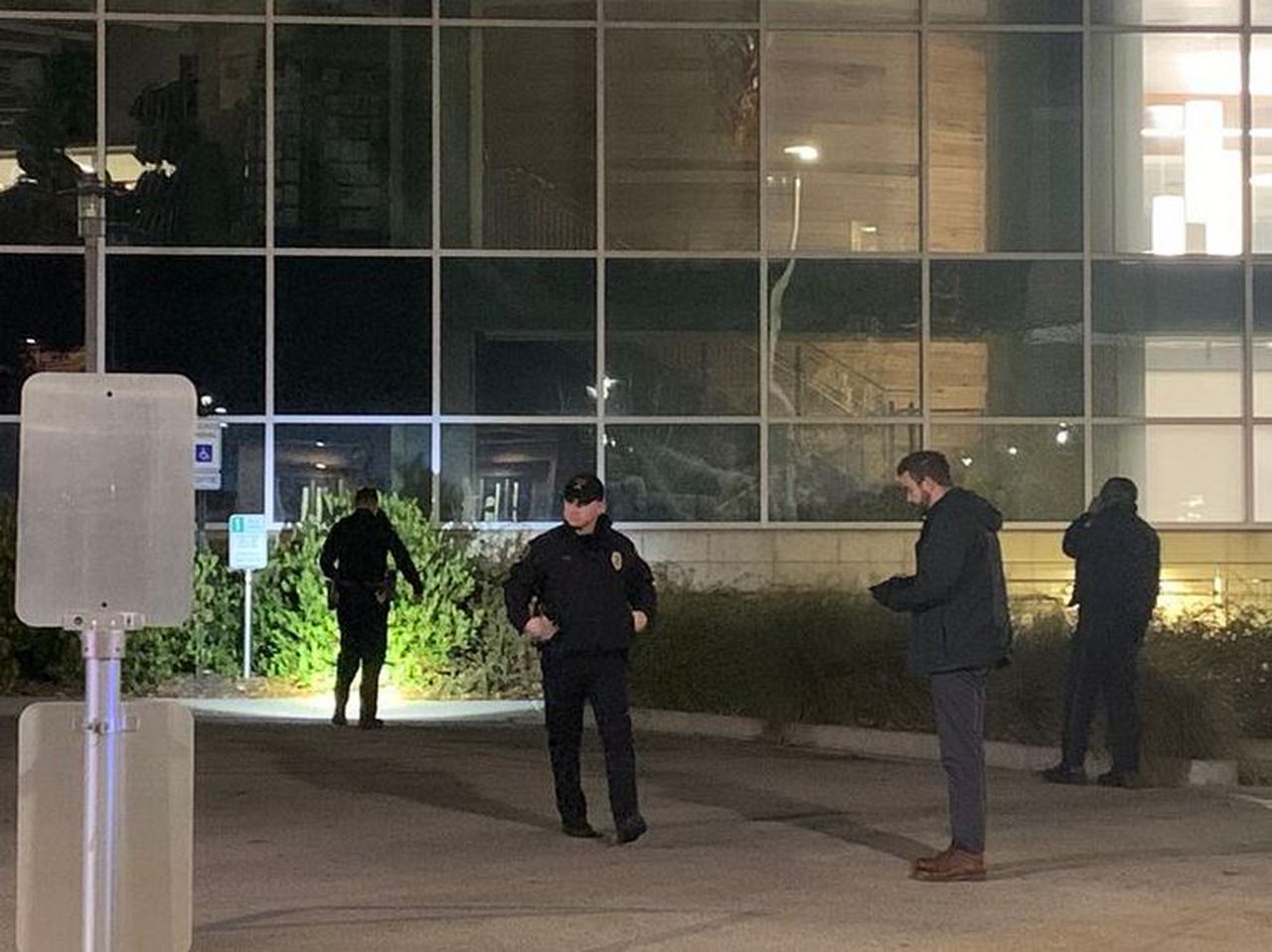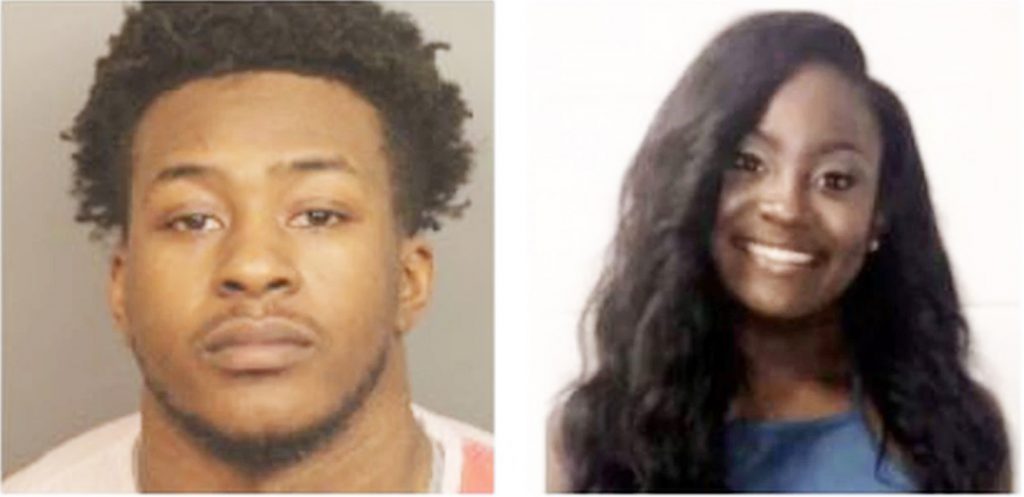A former UAB football player charged in the slaying of Birmingham nursing student Destiny Washington was found guilty Tuesday.
Jurors, after almost two days of deliberations and at one point telling the judge they could not agree on a verdict, convicted 24-year-old Carlos Stephens of capital murder.
The jury late Monday afternoon indicated they appeared to be deadlocked on reaching a consensus. Jefferson County Circuit Judge Kechia Davis then issued an Allen charge, sometimes called a dynamite charge, telling jurors to keep deliberating.
They returned at 9 a.m. Tuesday to resume deliberations and returned the guilty verdict before noon.
Sentencing is set for May 18. The only sentence Stephens can receive is life in prison without the possibility of parole.
Stephens’ family was allowed to embrace him following the verdict.
“I’m totally disappointed,’’ said Stephens’ attorney, Emory Anthony.
Prosecutors said they were pleased with the verdict.
“We are very grateful for the jury’s attention throughout the entire week of trial and their careful review of the evidence presented,’’ said Deputy District Attorney Ashley Patterson. “We hope that this verdict provides closure for the family and friends of Destiny Washington and that they are able to begin the healing process.”
Washington, a beloved 20-year-old nursing student, was shot to death at 9:40 p.m. on Thursday, Dec. 17, 2020, in the parking lot of UAB’s student center on University Boulevard.
The deadly shooting happened during the sale of a pair of AirPods that Washington’s boyfriend was selling to Stephens’ girlfriend, a deal that had been brokered through Facebook Marketplace earlier that day.
The transaction went sour amid accusations of counterfeit money and fake AirPods and ended with a deadly shot fired by Stephens.
Stephens, a former standout football player at Thompson High School who went on to play at UAB his freshman year, surrendered to police two days later.
He has remained in the Jefferson County Jail without bond since Dec. 21, 2020.
Stephens is represented by attorneys Anthony and Bobby Lendell Davis.
Jefferson County Deputy District Attorney Jessica Hebson prosecuted the case with Patterson.
The trial began one week ago, and the courtroom was packed throughout the week with about 1 ½ dozen family members each of Washington and Stephens.
Prosecutors contended Stephens should be convicted of capital murder in Washington’s death, calling it a senseless, unreasonable and unnecessary act of violence. They indicated to the jury that they believed Stephens was angry that Washington’s boyfriend was 30 minutes late arriving to their meeting and angry at what followed – which included Keyuntae Moultrie trying to sell Stephens a pair of fake AirPods, raising the previously agreed-upon price and then accusing Stephens of paying with counterfeit money.
Stephens’ attorneys, however, claimed their client fired in self-defense only after Washington’s boyfriend pulled a gun on him and threatened to “blow him away.”
In opening statements of the trial, prosecutor Hebson walked jurors through the events of that night, saying that Moultrie had bought in bulk several sets of AirPods to sell at a profit as he and Washington were trying to get extra money to spend over the holidays.
Moultrie, Hebson said, advertised the AirPods on Facebook Marketplace, an advertisement to which Stephens’ girlfriend, Victoria Roberts, responded to that Thursday night.
They arranged to meet at the UAB student center for Roberts to buy the AirPods for $90.
When Moultrie arrived at the designated location, however, it was Stephens waiting for Moultrie and Washington, not Roberts.
The two talked briefly and then Stephens handed Moultrie a $100 bill, and took the AirPods, asking Moultrie if they were real or knockoffs from China.
Hebson said Moultrie had a handgun in his jacket pocket, a gun that was registered and for which he had a permit.

She said Moultrie believed the $100 to be a fake. He tossed it back into Stephens’ car and “snatched” the AirPods out of Stephens’ hands.
“Mr. Moultrie watched as Mr. Stephens reached down to get a firearm,’’ the prosecutor said. “As Mr. Stephens was reaching, Mr. Moultrie began backing away from the car with his hand on his pocket where his gun was.”
She said Moultrie got into his car and as he was driving away, Stephens leaned out the window and fired a single shot.
“She was a young and strong and healthy woman, but nothing could be done,’’ Hebson said, “because that bullet that was fired was a .350 Legend – a hunting round – and it went straight through the license plate, straight through the passenger’s eat and straight into Destiny Washington’s back.”
Anthony, however, painted a picture of a different chain of events that night and revealed that Moultrie was the first to pull a gun that night. Moultrie had previously told detectives his gun was in his jacket pocket the entire time.
“How do we know this?” Anthony said. “After two years, he (Moultrie) finally told (Birmingham police Det. Kristopher Hatcher) on March 21, 2022. When he talked to (the detective) on Dec. 18, 2020, he didn’t say anything about pulling his gun out.”
“They waited almost two years to talk back with Mr. Moultrie and he said he had the gun out and was backing up with the gun,’’ Anthony said. “Mr. Moultrie, not my client, is the first person that pulled a gun. Mr. Moultrie was upset, and he told my client, ‘I will blow you away.’’’
“My client never pulled a gun on this man until after he pulled a gun,’’ Anthony said. “We have taped statement from Mr. Moultrie. He knew he was the cause of this. He was the gun that pulled the gun out and started this.”
Stephens took the stand in his own defense, calmly and confidently testifying for roughly 1 ½ hours Friday, the final witness to take the stand in the week-long trial. He frequently asked jurors if they could hear him OK and tried to make sure they understood what he was saying or showing them on a video screen in the courtroom.
He said after the failed transaction, Moutrie pulled his handgun out of his jacket pocket and threatened him.
Stephens said he put up his hands as Moultrie, still holding his gun, went back to his car, watching Stephens the entire time.
Stephens testified that his gun – a Ruger AR pistol – was in the backseat during the incident. He said he retrieved it as Moultrie walked back to his car and put it in his passenger’s seat. He said Moultrie then pulled his car closer to Stephens’ car and pointed a gun at him.
“I grabbed my gun, put my left hand over my face and shot a warning shot,’’ Stephens said. Testimony showed the bullet went through the license plate and back seat of Washington’s vehicle before striking her in the back.
Stephens said he wasn’t aware Washington, or anyone, was in the vehicle with Moultrie until after the transaction and said he then only saw a “figure” in the passenger’s seat.
Stephens said he then headed back to his mother’s house, tossing the AR pistol out of his car somewhere near Green Springs. Asked why he got rid of the gun, he said, ‘’I had just shot at somebody.”
He said he had to be at work at Fed Ex at 1 a.m., but when he got to work, he fell asleep in his car and didn’t wake up until daylight, missing his shift.
He went inside to pick up his check, and that’s when he said he learned that Washington had been shot and killed.
“I didn’t want to believe it was true,’’ he told jurors.
He said he told his family what happened, and then turned in his rental car because he planned on turning himself in to authorities and wouldn’t be needing a car.
He did so the following day at the UAB Police Department.










